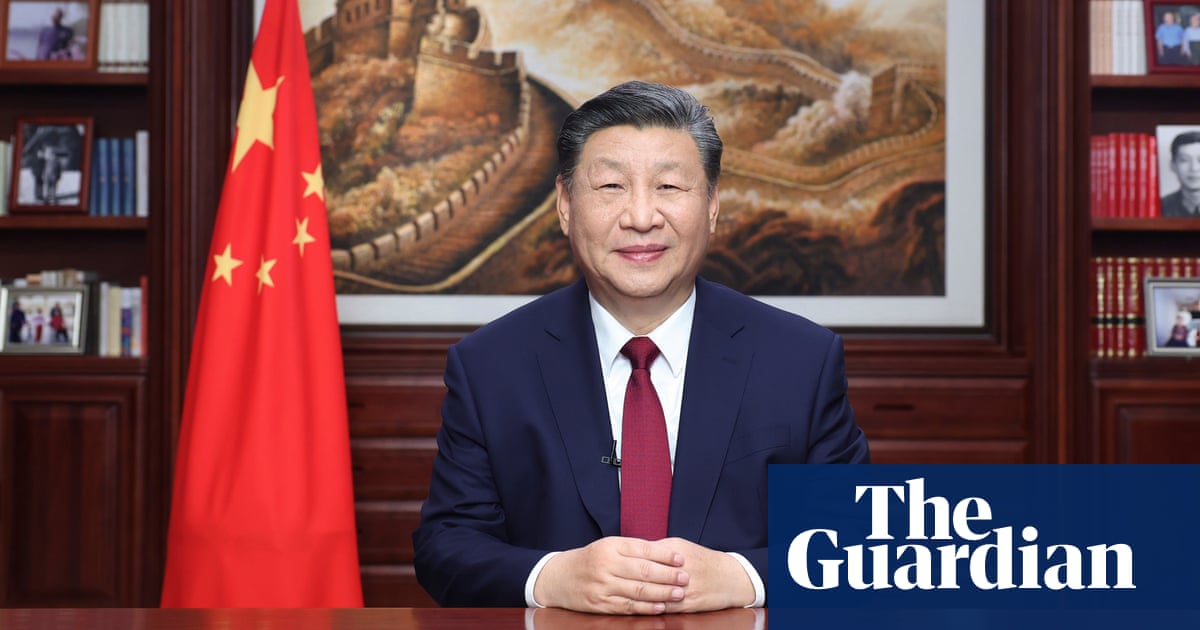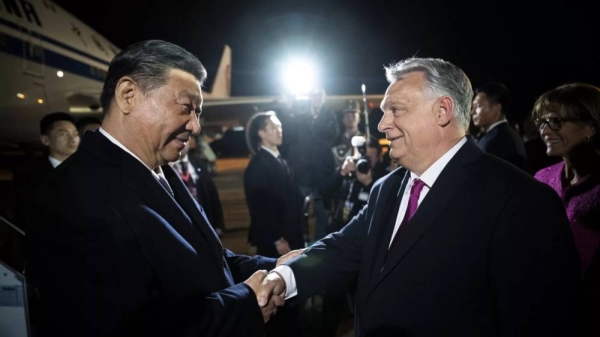
China’s president, Xi Jinping, acknowledged in his new year’s message that “some enterprises had a tough time” in 2023 as data showed a weakening of factory production deepened this month, but he vowed to step up the pace of the economy’s recovery.
Speaking on TV, Xi said: “Along the way, we are bound to encounter headwinds. Some enterprises had a tough time. Some people had difficulty finding jobs and meeting basic needs.”
The world’s second-biggest economy’s recovery remains sluggish, held back by a severe property slump, lacklustre global demand and record youth unemployment. Evergrande, once China’s biggest developer, has embarked on a painful debt restructuring process, while Country Garden, its main rival, defaulted in October.
China’s factory activity shrank more than expected in December after a decline in new orders.
Clouding the economic outlook, the worse-than-expected figures boosted expectations of fresh stimulus measures in the new year.
Xi said China would “consolidate and enhance the positive trend of economic recovery, and achieve stable and long-term economic development”.
In 2024, the 75th anniversary of the founding of the People’s Republic of China, “we will consolidate and strengthen the momentum of economic recovery, and work to achieve steady and long-term economic development. We will deepen reform and opening up across the board,” he said.
The authorities have cracked down on negative commentary to boost public confidence.
China’s official manufacturing purchasing managers’ index (PMI), a closely watched survey, fell to 49 in December from 49.4 in November, below the 50 mark that divides growth from contraction. This marked the third month of declines and was the weakest reading since June.
New orders were the main drag, sliding to 48.7, while export new orders also worsened, with a reading of 45.8. Production remained in expansion territory but edged lower to 50.2.
“We must step up policy support, otherwise the trend of slowing growth will continue,” said Nie Wen, an economist at Hwabao Trust. Nie expects the central bank to cut interest rates and banks’ reserve requirement ratios in the coming weeks. “Falling prices have greatly affected companies’ profits and further affected people’s employment and incomes. We may see a vicious cycle.”
China’s central bank said on Thursday that it would step up measures to support the economy and encourage a rebound in prices, amid signs of intensifying deflationary pressures. Top Chinese leaders also pledged to take more steps next year at a meeting to chart the economic course for 2024 earlier this month.
Kevin Lam, senior China economist at Pantheon Macroeconomics, said: “Overall, the impact of the recent fiscal stimulus is yet to be felt in the economy. We are still not seeing the reconstruction-related demand being filtered through to the manufacturing sector.
“Externally, demand conditions from China’s key trading partners – the US and EU – are expected to be sluggish in the near term, thanks to elevated interest rates prevailing in those economies. This will further hamper manufacturing production in China … We continue to expect China to rely on fiscal policies, mainly through the fixed asset investment channel to stabilise growth, but don’t expect bazooka stimulus seen during the global financial crisis.”
China’s non-manufacturing PMI, which includes services and construction, rose to 50.4 in December, indicating a modest expansion. The construction index rose to 56.9 in December, as many companies rushed to complete their construction projects before lunar new year in February.












